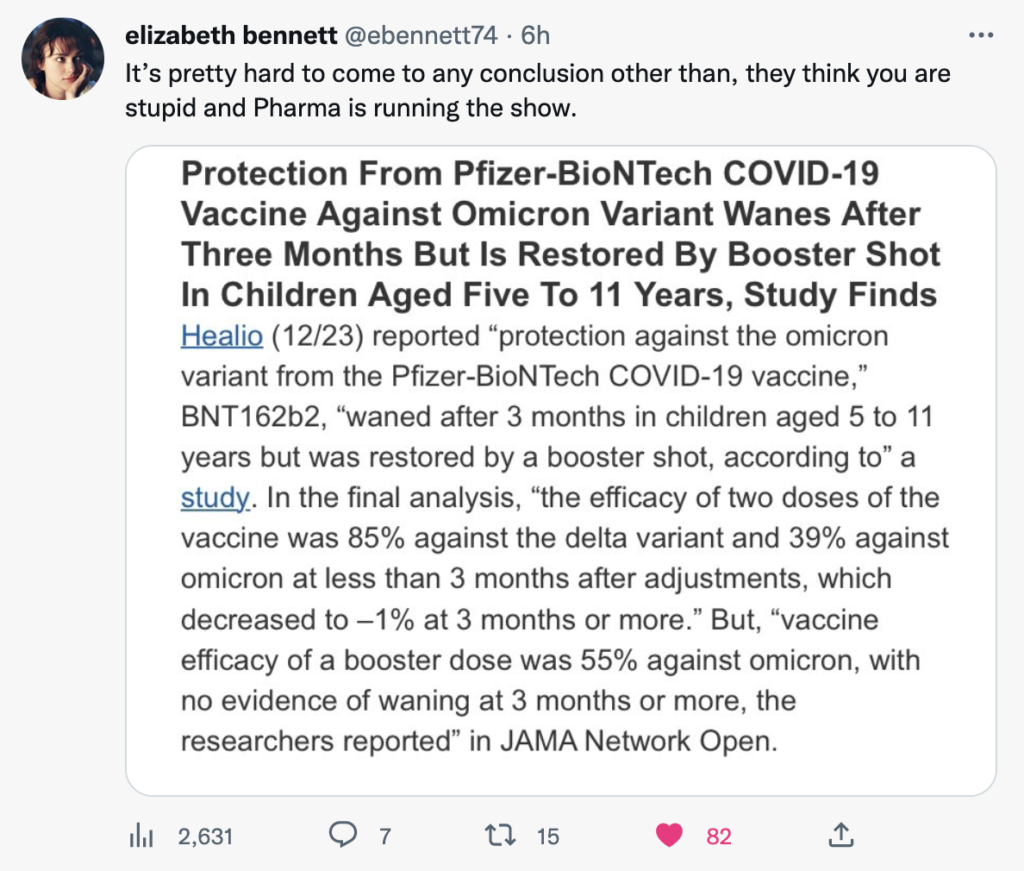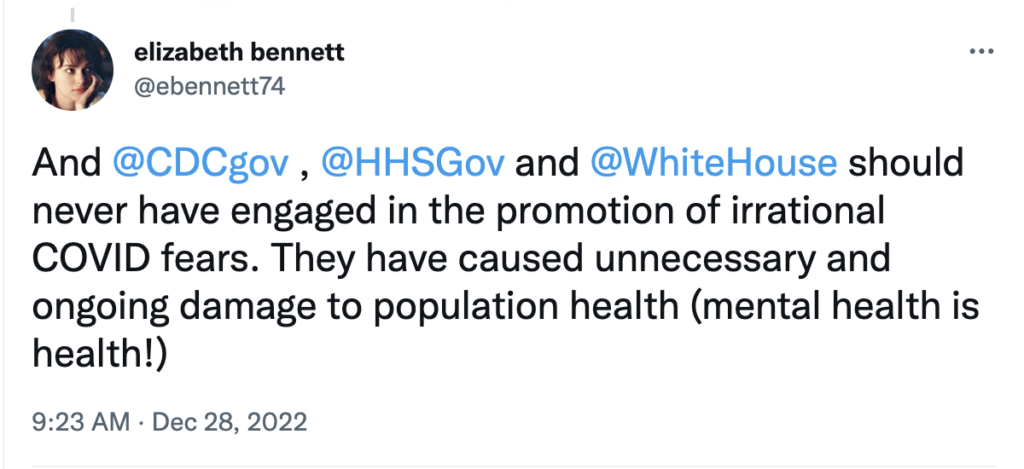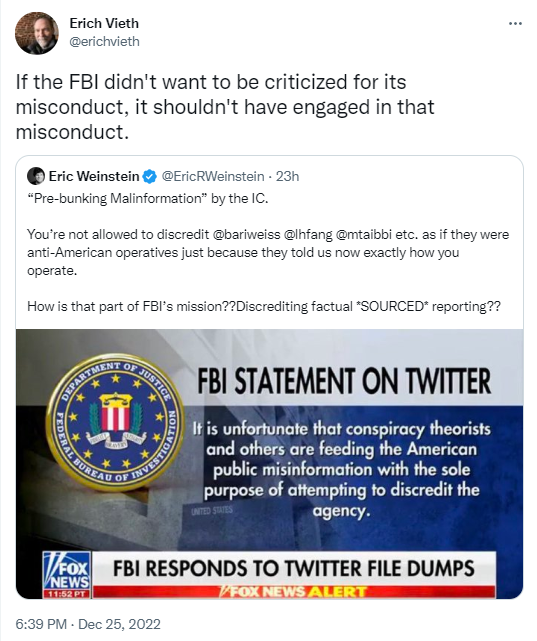How to Marginalize Ideas and People to Create an Illusion of Consensus, Hurting People in the Process
A story of hubris by the powers that be. This could also be characterized the sort of thing Jonathan Haidt would characterize as "structural stupidity":
People who try to silence or intimidate their critics make themselves stupider, almost as if they are shooting darts into their own brain.
What follows is an Excerpt From The Free Press. "Government Power v. People Power," By Dr. Jay Bhattacharya:
From the beginning of the Covid-19 pandemic, I was a vocal critic of lockdowns and school closures that I believed would cause more harm than good. In October 2020, with Sunetra Gupta of Oxford University and Martin Kulldorff of Harvard University, I wrote the Great Barrington Declaration, which proposed protecting vulnerable people while lifting lockdowns for the majority of the population. In other words, it advocated a return to classic principles of pandemic management that had worked to limit the harm of other respiratory virus pandemics. Tens of thousands of scientists signed on.[Dr. Jay Bhattacharya is a professor of health policy at Stanford University, where he has taught in the medical school for over two decades].Four days after we wrote it, the head of the National Institute of Health, Francis Collins, wrote to Anthony Fauci, labeling us as “fringe epidemiologists” and calling for “a quick and devastating published takedown” of the declaration. A propaganda campaign quickly ensued, with various media sources falsely accusing me of wanting to let the virus rip. It wasn’t just the press. Recently I learned in these pages that Twitter placed me on a secret blacklist to limit the reach of my tweets.
So what did I learn in 2022? I learned in a very concrete and painful way the effects of Washington and Silicon Valley working together to marginalize unpopular ideas and people to create an illusion of consensus.
This censorship and smear campaign deprived the world of a needed debate over Covid policy and might have avoided much unnecessary suffering by children, the poor, and the working class harmed by lockdowns.
Here is an excerpt from the Great Barrington Declaration:
Fortunately, our understanding of the virus is growing. We know that vulnerability to death from COVID-19 is more than a thousand-fold higher in the old and infirm than the young. Indeed, for children, COVID-19 is less dangerous than many other harms, including influenza.As immunity builds in the population, the risk of infection to all – including the vulnerable – falls. We know that all populations will eventually reach herd immunity – i.e. the point at which the rate of new infections is stable – and that this can be assisted by (but is not dependent upon) a vaccine. Our goal should therefore be to minimize mortality and social harm until we reach herd immunity.
The most compassionate approach that balances the risks and benefits of reaching herd immunity, is to allow those who are at minimal risk of death to live their lives normally to build up immunity to the virus through natural infection, while better protecting those who are at highest risk. We call this Focused Protection.



